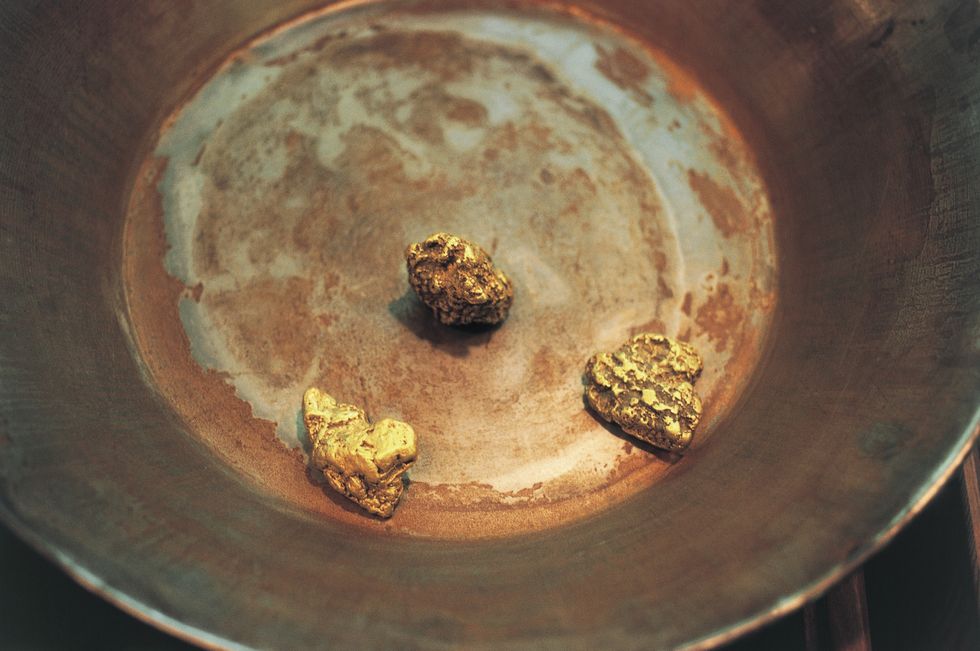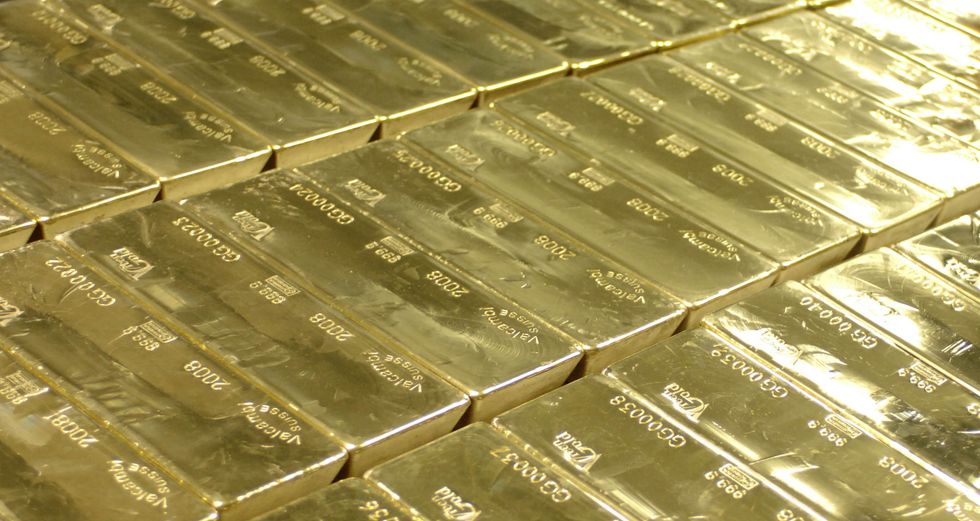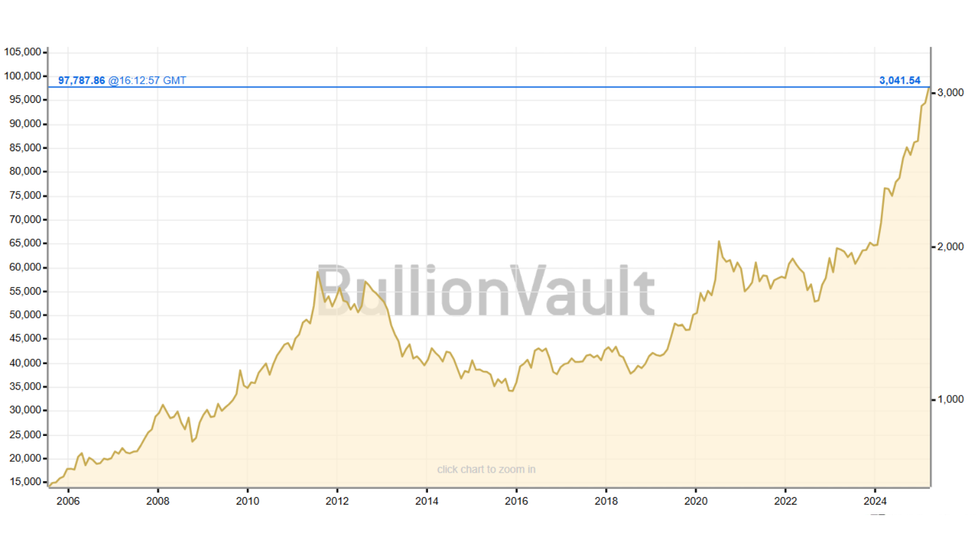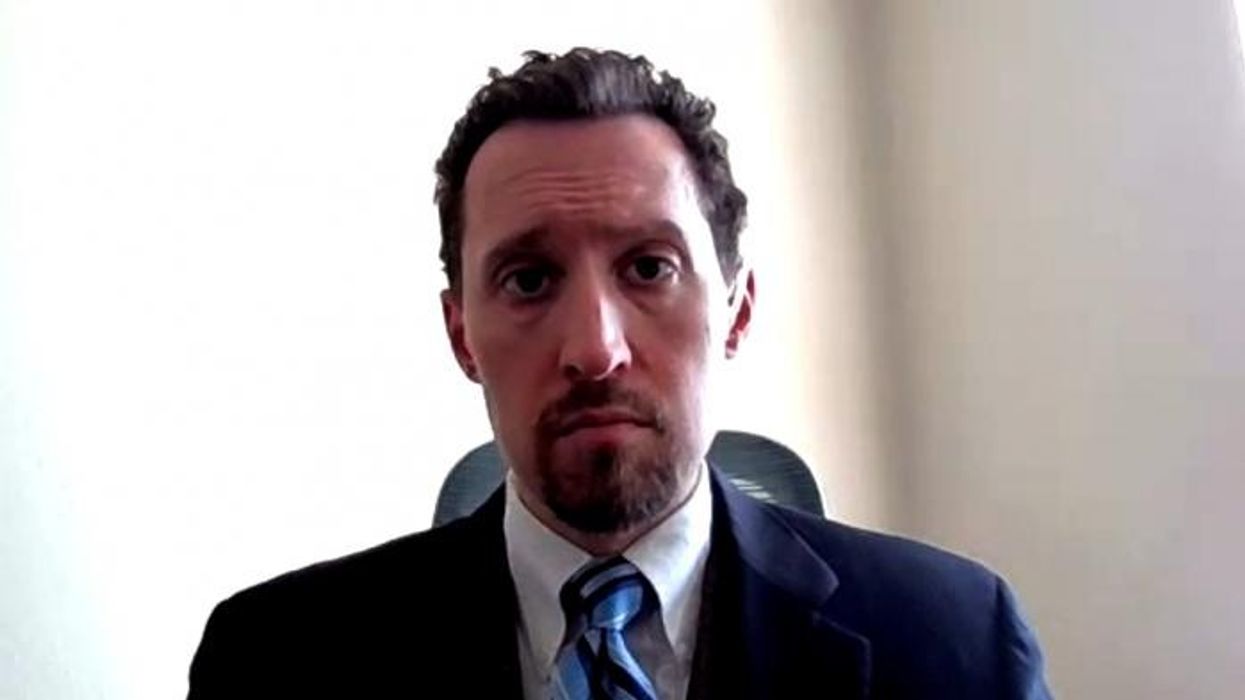Science breakthrough: Gold and other precious metals found to be leaking from Earth's core

More than 99.999 per cent of our planet's gold is found in the core
Don't Miss
Most Read
Scientists have discovered that Earth's core is leaking gold and other precious metals to the surface, challenging long-held beliefs about the isolation of our planet's innermost layer.
The groundbreaking research reveals that valuable metals are gradually seeping from the core into the mantle and eventually reaching the crust.
Based on isotopic analysis of volcanic rocks from Hawaii, this finding suggests a far greater interconnection between Earth's core and outer layers than previously understood.
Researchers from the University of Göttingen in Germany analysed volcanic rocks collected from Hawaii, a chain of islands formed by mantle plumes that extend deep into the Earth.

Science breakthrough: Gold and other precious metals found to be leaking from Earth's core
|GETTY
Using advanced isotopic analysis, they detected abnormally high concentrations of ruthenium-100 (^100Ru) in these rocks.
This isotope is significantly more concentrated in Earth's core than in the mantle or crust, providing compelling evidence that material is moving from the core-mantle boundary to the surface through superheated plumes.
The Earth's core, formed 4.5 billion years ago, contains more than 99.999 per cent of our planet's gold and other precious metals like ruthenium, locked away beneath 3,000 kilometres of solid rock.
These "siderophile" or iron-loving elements were previously thought to be completely inaccessible to humans.
LATEST DEVELOPMENTS:

Gold bullion in Switzerland
|GETTY
However, the new study suggests that mantle plumes — columns of superheated rock rising from the core-mantle boundary — are transporting hundreds of quadrillion metric tonnes of this material to the surface, creating volcanic islands such as Hawaii.
"When we first looked at the first results, we knew that we had hit gold in the literal sense," said Dr. Nils Messling, lead geochemist on the study.
"We had proven what we had hoped with our data: rock from the core, such as gold and precious metals, is migrating into the mantle and being carried to the surface."
In a separate statement, Dr. Messling added: "When the first results came in, we realised that we had literally struck gold!"

Price of Gold since 2005
| BullionVaultThe findings fundamentally alter our understanding of Earth's internal structure and dynamics.
Study co-author Professor Matthias Willbold emphasised: "Our data not only show that Earth's core is less geochemically isolated than before.
"We can now also demonstrate that enormous amounts of superheated mantle material take their origin at the core-mantle boundary and make it to the surface."
This revelation suggests that boundaries once considered impermeable actually allow material exchange between the core and mantle, creating a more interconnected planetary system than previously believed.
While the possibility of extracting gold directly from Earth's core remains beyond our current technological capabilities, researchers suggest this discovery could have significant implications for understanding the distribution of precious metals on our planet's surface.
The leakage of core materials through mantle plumes may explain anomalies in the availability of gold and other rare metals, particularly in volcanic island arcs.
This knowledge could ultimately influence prospecting strategies, potentially leading to more targeted exploration of geologically active regions connected to deep mantle processes.











